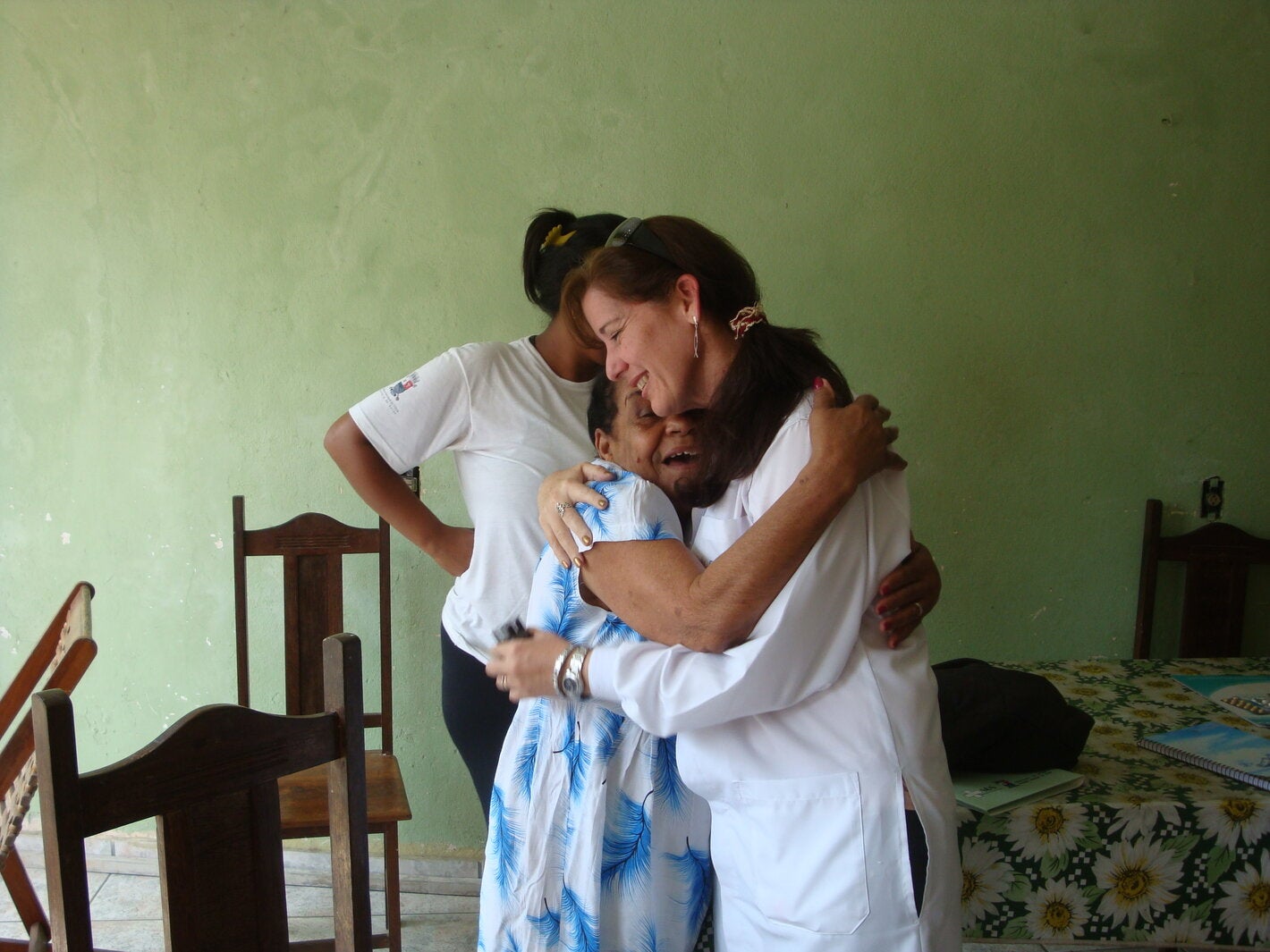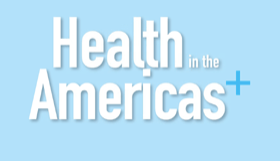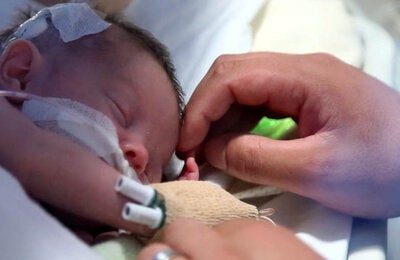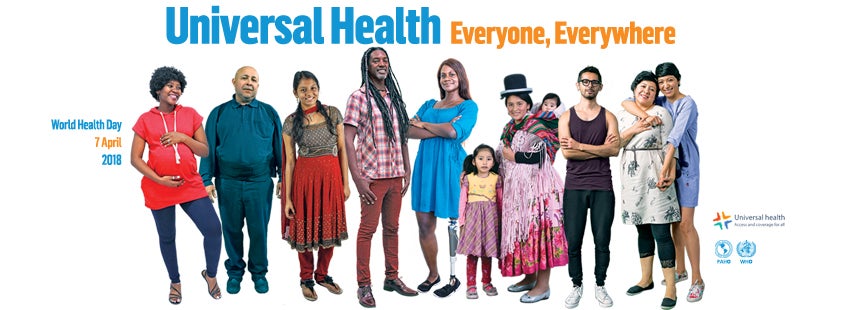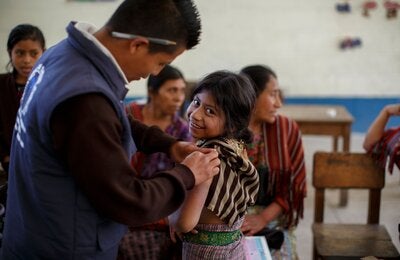Salud universal consiste en garantizar que todas las personas y comunidades tengan acceso a los servicios de salud sin discriminación de ningún tipo y sin sufrir dificultades financieras.
- La salud universal no solo se trata de garantizar que todos estén cubiertos, sino a que todos tengan acceso a la atención cuando la necesitan, donde la necesiten.
- Requiere la participación de todos los sectores de la sociedad para combatir la pobreza, la injusticia social, las brechas educativas y las malas condiciones de vida, entre otros factores que influyen en la salud de las personas.
- Cubre toda la gama de servicios de salud, incluida la promoción de la salud, la prevención de enfermedades, el tratamiento, la rehabilitación y los cuidados paliativos, los cuales deben ser de calidad suficiente, completos, seguros, efectivos y asequibles para todos.

Key actions for Universal Health
1. Expanding equitable Access
- Investing in models based on primary care and the comprehensive delivery of effective people-centered services, and gradually expanding these.
- Guaranteeing the rational use of medicines and health technologies.
2. Strengthening stewardship and governance.
- Empowering people and communities by providing them information on health, educating them on their rights and responsibilities, and encouraging them to participate in health policy-making.
3. Increasing and improving financing
- Eliminating payments at the point of entry to the service.
- Finding sustainable ways to increase health financing.
- Protecting people financially, especially those who are less able to pay for the services.
4. Strengthening intersectoral coordination
- Strengthening intersectoral coordination to address the social determinants of health.
Health in the Americas is PAHO's flagship report about the status of Health in the Americas.
Learn more about Universal Health
The self-learning course on the Strategy for Universal Health and Universal Health Coverage course is available on the Virtual Campus platform (only in Spanish but soon in English)
World Health Day
World Health Day is celebrated on 7 April every year to mark the anniversary of the founding of WHO in 1948. Each year a theme is selected that highlights a priority area of public health. The Day provides an opportunity for individuals in every community to get involved in activities that can lead to better health.
What you can do
Everyone has a part to play, sparking conversations and contributing to dialogue on policies that can help your country achieve and maintain universal health.
Learn how PAHO engages a social dialogue among all actors to seek innovative ways to accelerate countries’ efforts toward universal health.
Salud Universal en datos
3 out of 10 people do not seek health care for financial reasons
2 out of 10 people do not seek medical care due to geographical barriers
66% of the remommended percentage is invested in health based on the each country GDP
5 countries of 52 of the Americas allocate over 6% of their wealth (GDP) to public health
Guaranteeing the right to health means eliminating all kinds of barriers to accessing services
Dr. Carissa F. Etienne
Directora de la Organización Panamericana de la Salud

